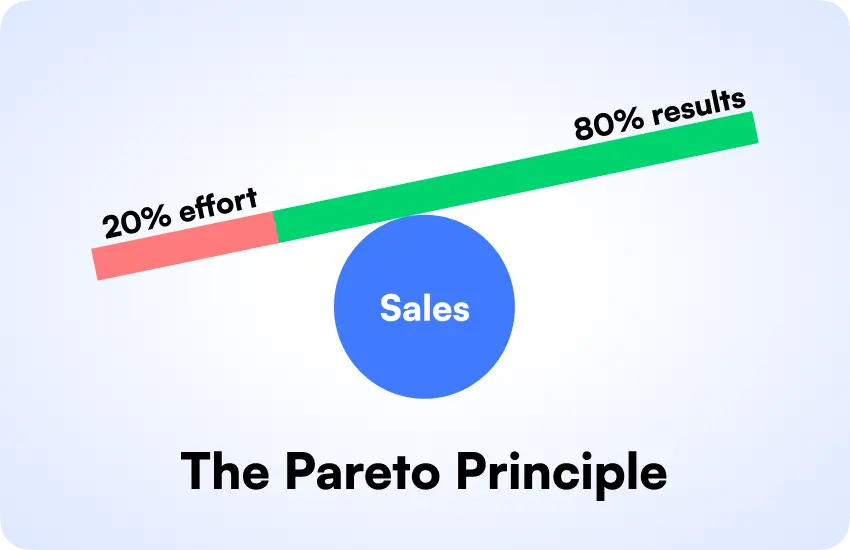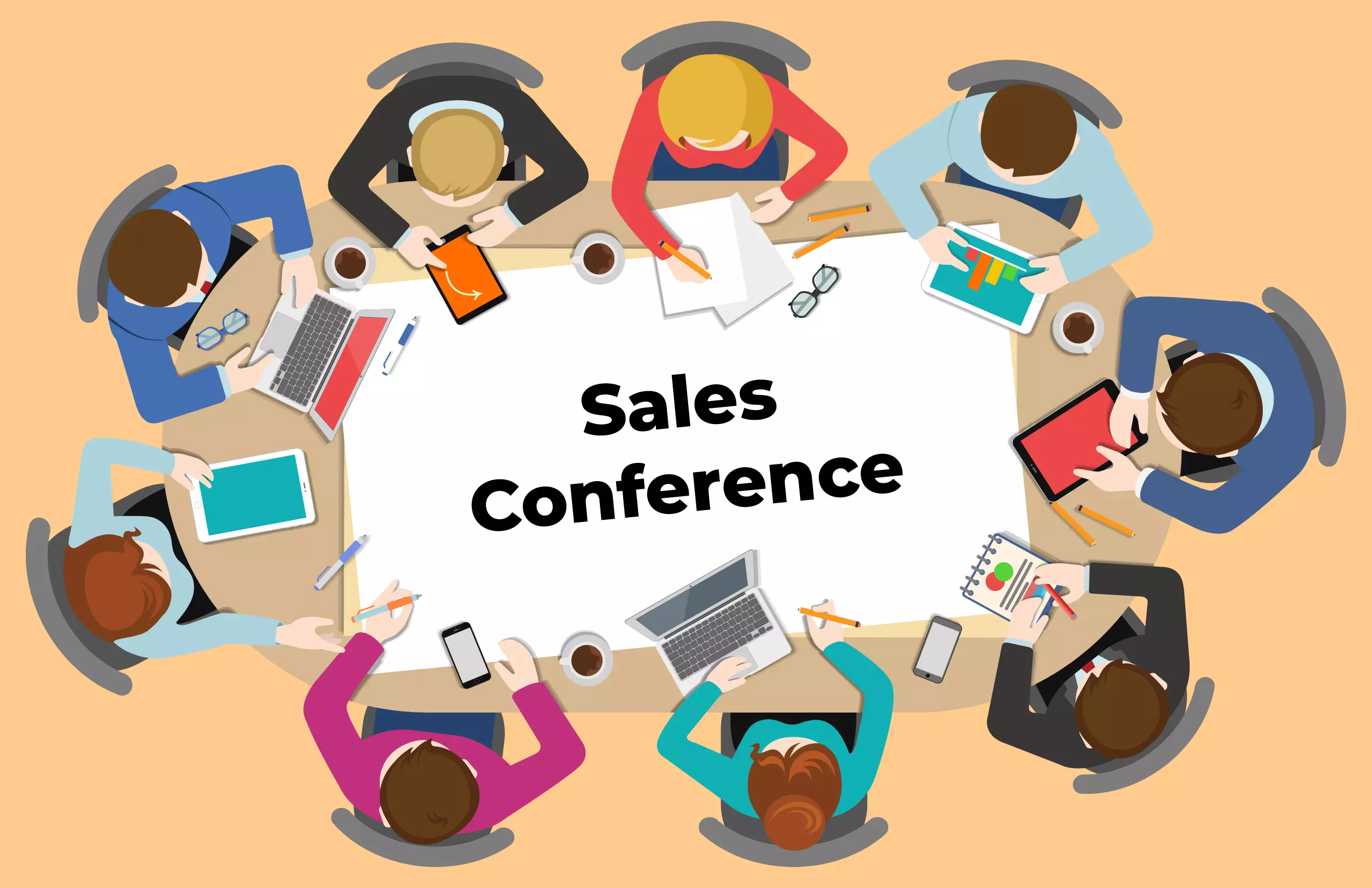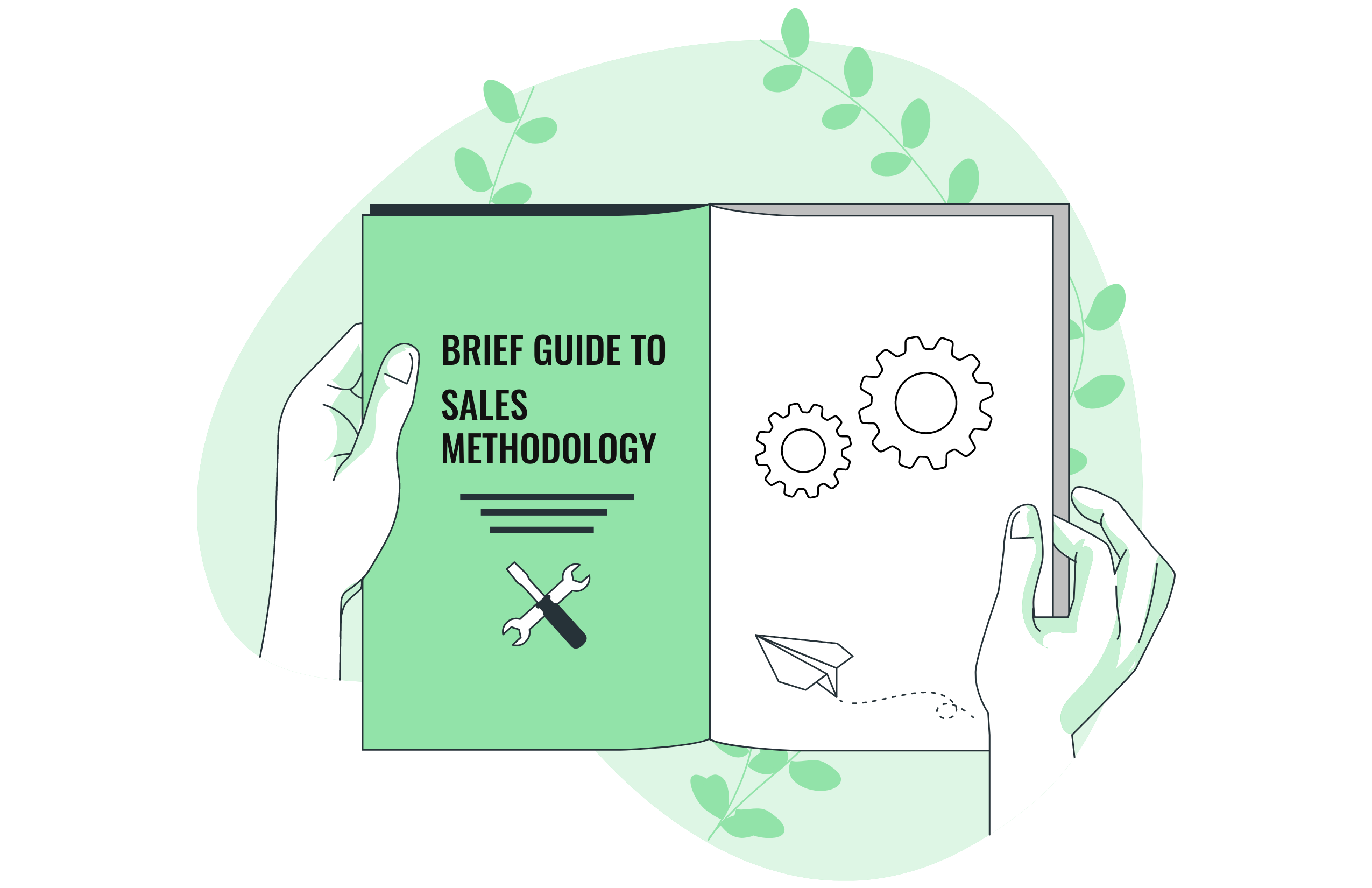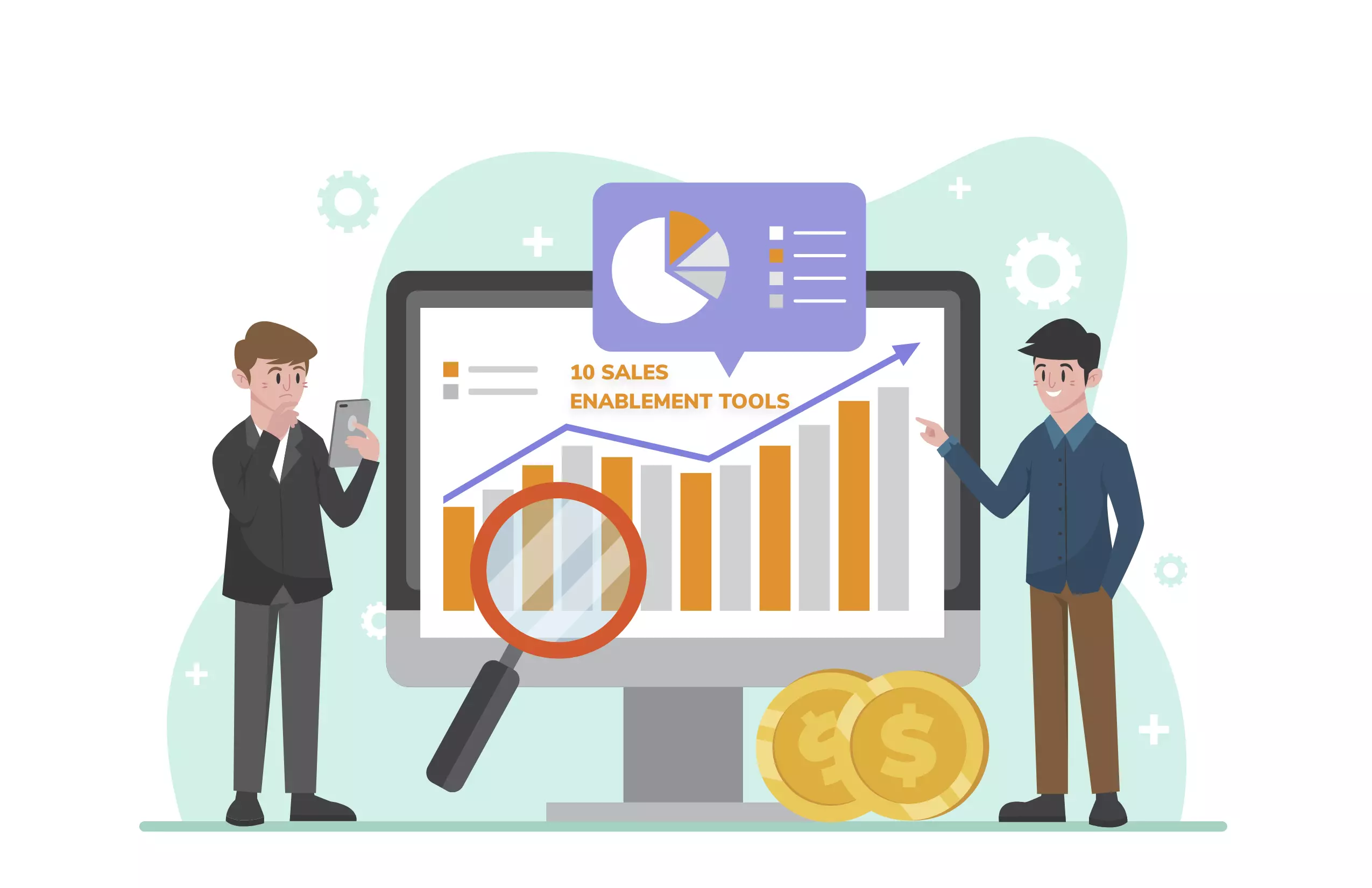
How Field Sales Differ From Inside Sales
Table of Contents
What is the difference between field sales and inside sales— which can be the better sales concept for your business?
To make it simple, field sales and inside sales are two sides of the same coin. Both sales concepts can help you convert leads, but their approaches taken are significantly different and vary greatly.
Relying on the organization, product, pricing strategy, target customer, and more, the sales team will look, work, and perform differently. So when someone asks how to define field sales vs. inside sales, the answer will certainly be subjective.
Field sales versus inside sales is a concept and dilemma that most businesses will have to consider at some point. Deciding on which approach to take is an important step in any organization’s sales strategy and has a tremendous impact on one’s business.
Despite the importance of this discussion, many are unaware of the difference between field sales and inside sales. Field salespeople have different needs compared with inside salespeople and learning the difference between the two concepts will significantly improve your personal and business efficacy.
Let’s get to know how field sales differ from inside sales?
What are Field Sales?
Field sales, also known as outside sales, refer to the selling of products or services by the sales team outside the organization or in a formal team environment. Salespeople literally go out into the field to meet with prospective customers and to generate leads.
A field sales team usually goes out of their way for a face-to-face meeting because closing a field sale can often depend on the pitch and the relationship that your sales rep builds with a prospective customer.
In field sales, salespeople don’t always work in normal office hours or work in an office setting. Instead, field sales reps are often on the go, meeting with potential clients and maintaining follow-ups with leads for sales.
Benefits of Field Sales in Business
As mentioned earlier, meeting face-to-face is often a requirement for big-business clients and industries that focus on expensive products or services. Available to meet clients in person at their comfortable location also highlights your commitment to customers and confidence in the product you’re selling.
- High deal close rate: Field sales teams have a higher deal close rate due to the extra effort and personal attention given to their minimum number of leads.
- Neat and clear communication: Field sales reps have the advantage of their ability to make in-person direct presentations and use body language to help their sales pitch.
- Flexible working hours: Field sales reps can set their working hours and have a flexible work schedule.
- Greater deals: Field sales will generally land larger, more lucrative deals than inside sales done in the office.
Related: 5 Types of Sales Managers and Their Roles in a Business
What are Inside Sales?
Inside sales, also known as remote sales, is the process of selling products or services to potential customers from a remote location. Contrary to telemarketers, inside sales are highly skilled and knowledgeable.
At first, inside sales activities were initially conducted over the phone, but today’s remote sales professionals use additional modern communication tools such as email, text messaging, social media, video calls, and customer relationship managers (CRMs) for product selling strategies.
With an inside sales concept, the inside salesperson can usually approach, nurture, and potentially convert a maximum number of leads from the safety of their office or home. This approach is also cost-effective and allows you to sell to prospects regardless of their location.
Benefits of Inside Sales in Business
Inside sales offer a more anticipated schedule. Based on the sales conversations, reps can quickly identify their prospect’s position in the sales funnel. So that, remote sales reps can plan their daily and weekly activities accordingly.
As they are selling remotely, inside sales reps have the power to expand their focus from one sales funnel stage to the other quickly.
- Efficient sales process: Inside sales have a quicker sales cycle than field sales due to the process of courting potential buyers being streamlined and the stakes of an individual sale being lower.
- Cost-efficient: It is a very cost-effective sales model. In the absence of travel and accommodation costs, you can spend more time and money in setting scalable processes.
- Greater access to customers: Inside sales give your team the ability to be available whenever is best for your customer’s schedule.
- Easier to manage: Mostly field sales teams are spread across locations, meeting prospects outside. This makes it a little difficult for the managers to keep a check on them. But, a remote sales team can all sit in the same location, and just makes the work easier for them.
Field Sales Vs Inside Sales: What is the difference?
The foremost difference between field sales and inside sales comes down to how you sell your product; via technology or in person. Inside sales involve selling products and services remotely.
Field sales are where you sell products and services in person through face-to-face meetings. As you can imagine this method involves a considerable amount of travel.
Inside sales are more common in companies focusing on modern products like technology whereas traditional hardware product sales usually rely on the field sales concept. However, there are exceptions to this rule. You have to decide which method works best for you and your product.
Length of the sales cycle:
Sales cycle length is the amount of time it takes to close a sales deal. Inside sales have a much shorter sales cycle than field sales. The reason is inside sales model is generally used for selling things like technology solutions that solve simple problems and aren’t very expensive.
So it doesn’t make financial sense to spend a lot of time acquiring a customer. Field sales are normally preferred for selling products, services, and solutions that are complex and expensive. This means field salespeople need a longer sales cycle to close deals.
Variations in Skill Sets
Field sales typically require a greater level of situational awareness and emotional intelligence. As the field sales reps will need to be understanding with the ability to think quickly, answer questions of customers, pick up on social cues, and keep the communication with prospects flowing.
Inside sales, on the other hand, require a high level of focus and the ability to follow instructions. Using a more repeatable, process-driven sales strategy, remote sales reps typically have templates to help guide through their workflow as efficiently as possible.
Of course, some qualities will be common for both inside and field sales teams including excellent communication skills, confidence, and perseverance.
Sales Close Rate
Inside salespeople have low close rates, and field salespeople have high close rates. This is because remote sales teams have a low customer acquisition cost, so they focus on connecting to a high volume of leads.
When a lead doesn’t buy from an inside salesperson, it’s not a significant loss because the salesperson didn’t spend much time or money acquiring that lead. In contrast, field salespeople have a much higher customer conversion rate because they don’t give up easily on a client they’ve been prospecting.
If they fail to make a sale, that means they’ll lose a significant amount of time and money. In field sales, it makes financial sense to spend as much time as you need with a potential customer to close the deal.
Different Sales Tools
We have already heard about some of the varieties of tools being used by field and remote sales teams to close their sales deals and achieve their sales quotas — but let’s cover them in more detail.
Inside salespersons are usually found at their office table, computers, phones, CRMs, and emails, while field sales reps are moving from location to location in their vehicles, collecting frequent travel allowances, and checking their mobile phones in waiting rooms trying to get in front of a decision-maker.
In spite of all these differences, the gap between inside and field sales is getting smaller every year. The invention of new technologies like mobile Field Force Automation, Field CRMs makes it easier to communicate remotely, leading to many field salespeople using a hybrid sales strategy.
For instance, an on-field salesperson might still meet potential client’s in-person to land new business, but they can then switch to remote communication methods to maintain relationships with their existing customers.
Core Metrics of Sales
Both inside and field sales teams must evaluate their sales performance to determine what is and is not working with them. However at a high level, the metrics will measure general aspects of the sales role, such as revenue, new logos, pipeline management, conversion rates, and quota attainment, the KPIs are different for each type of sales team.
Inside sales teams will typically measure the performance of their call, email, or other touch points against successful connections, opportunities, or closed deals. More telling than mere volumes, these ratios measure the actual effectiveness of your inside sales team.
Field sales teams will likely place more emphasis on tracking the number of meetings, presentations, or demos that resulted in a closed sale. Field sales teams will also place larger scrutiny on quarterly and annual revenue goals, compared to remote sales teams who are more likely to measure weekly or monthly.
Summing Up
Choosing which of these sales concepts to use for your business is an important decision. To make it simple for you, if your product is entirely online and multinational then inside sales are touchpoints your perfect option.
If you use the inside sales method then base your team’s goals on overall company sales goals. Each remote sales rep should have a target to achieve that is on display to improve accountability.
If you decide to focus purely on-field sales then you absolutely have to invest in the best Field force automation software your entire team uses. Mark each of your sales persons’ territories, track their meetings and plan to ensure there’s no overlap or confusion.
However, you can also adopt a hybrid approach. In fact, this is rapidly becoming a feature at most sales-focused companies in recent times. Employing this approach can be extremely effective as it covers more than one single approach but it relies on hiring adaptable and tech-savvy employees.
They need to be both analytical enough to work well as a remote salesman yet possess enough initiative and interpersonal skills to be a decent field salesman.
To keep in mind, whatever sales method you decide to use, inside or field, you will face sales challenges you will need to overcome. Always consider how you can adapt and change your practices to increase your efficacy and success.










































































